The women who tame the bees: The buzz on developing a business in a traditionally male area
Date:
Until recently, there were few women beekeepers in the Republic of Moldova, but there has been a recent buzz in activity. Gradually managing to ‘tame’ the bees and overcome stereotypes, today roughly 8 per cent of the 7,696 apiaries listed in the National Food Safety Agency’s National Register of Beekeepers are kept by women.
The apiaries belonging to Liza Mămăligă, from the village of Todirești in Ungheni, and to Cristina Bacaliuc, from Andrușul de Jos village in Cahul, are among that 8 per cent. Both beekeepers are energetic, curious and fascinated by bees and their work.
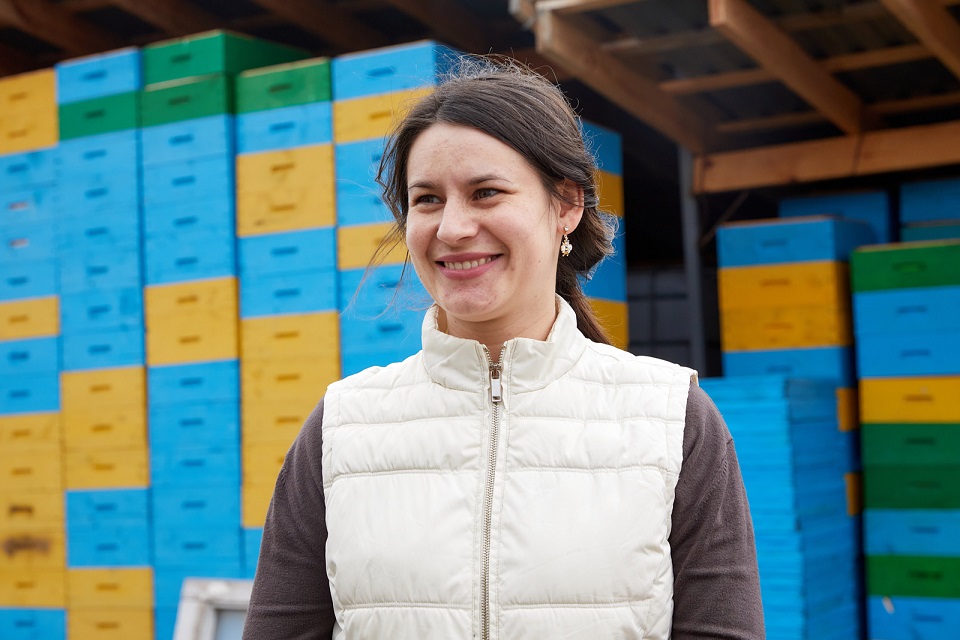
Croutons rolled in honey
At 33 years of age, Mămăligă is a young mother and businesswoman who has worked hard to build herself a wonderful future in her hometown. In fact, she never stops – something she seems to have learned from the bees she keeps. She wakes at the break of dawn, makes a cup of tea from flowers she picks in the garden and plans her day. Order and involvement in your work are the key to the success of any business, the young woman believes.
After completing her studies, Mămăligă started to look for job offers. She could not imagine sitting for hours in a row in a bank, working behind a desk. She wanted to try to create something new – but what exactly? A scholarship in Germany caught her attention. Young people from all over the world had the possibility to learn from renowned experts how to start their own businesses.
Bees were the first thing she thought about. She had lived her whole life among bees and hives. Her best childhood memories are related to them, when the neighbours’ children would visit and her father would give them a plate of honeycomb. She recalled how tasty the croutons rolled in fresh acacia honey were, or how she and the children used to hide behind the colourful beehives in the apiary by the forest.
This is how the small family business started.
“It was in 2012. At that time, you could see only older men at the beekeepers’ meetings or fairs. No one would take you seriously [as a girl]. I was young and I was a beekeeper. They were thinking that I had bought the honey and that I was trying to sell it, but their lack of trust motivated me even more to continue learning and I want to bring beekeeping to an even higher level and to have more young people involved in this kind of work,” admits Mămăligă, with and a cheeky grin.
‘Beekeeping is a challenge’
She managed to reach her goal over the years. Now, she has around 80 beehives and produces natural nutritional bars made with hazelnut, plums and other vitamin-rich fruit, which are popular and appreciated in the European Union market.
She also produces her own propolis tincture, beeswax candles and tea sets made of plants she grows in her own garden. “I love trying new things. I want to test my ideas,” laughs Mămăligă while putting on her suit and picking the bee smoker, which she uses to calm the bees down. It’s time she paid them a visit to make sure they are well and not in need of anything.
“I like to spend time in nature. When I work with the bees, I can feel all seasons, all flowers, meadows; I feel connected to nature. Beekeeping feels like a challenge – many issues to resolve, decisions to make, and sometimes this has to be done in the blink of an eye. There’s no time to get bored, and every year feels different,” says Mămăligă.
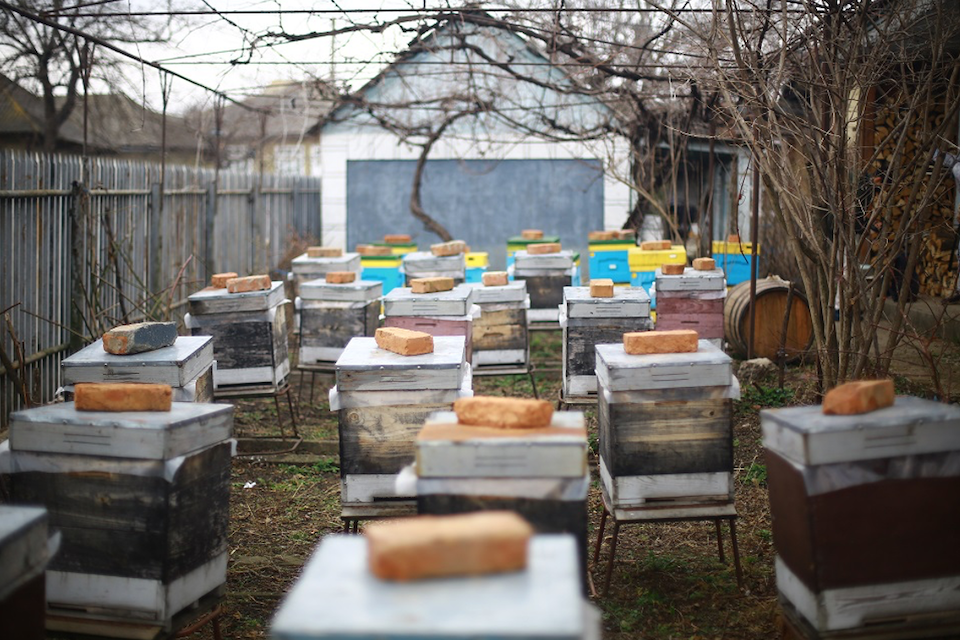
She aims to promote local products, which are natural and have as little processing as possible. “I want us to develop new product ideas, to bring money into the local economy, to create jobs, and to do the work we like. Bees, as we know, are very important for biodiversity, for pollination, for organic farming. We want everything we do to have a positive impact. We don’t want to make any compromises that would harm the environment,” adds Mămăligă as the sunrays breach the heavy clouds and start warming the hives scattered by the edge of the woodlands.
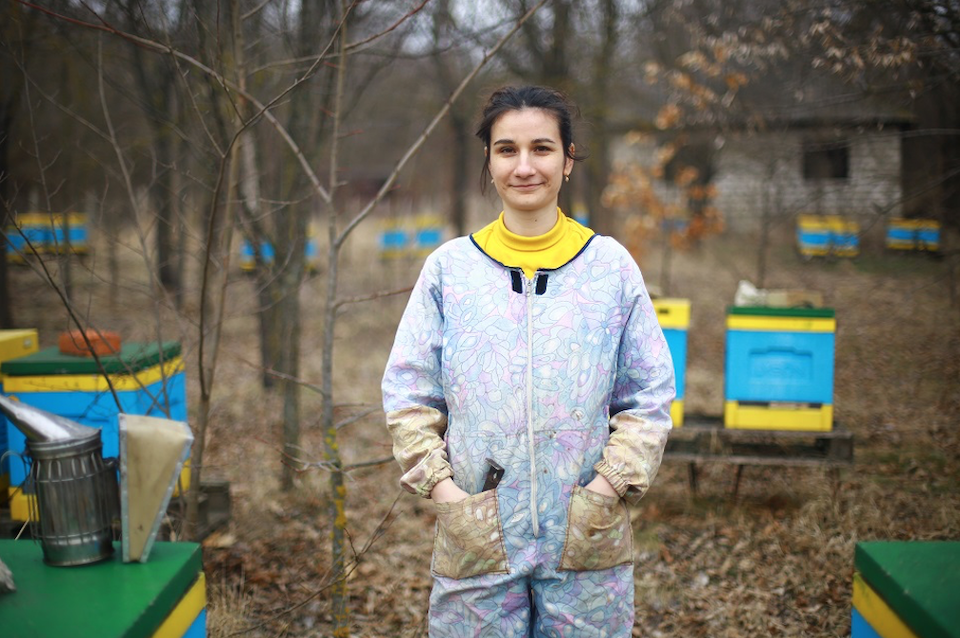
‘I always keep an eye on the weather forecast’
It is a single-storey house. One can hear the soft humming of the device that transforms honey into an aired homogenous cream, enriched with cinnamon and ginger. Cristina Bacaliuc bends over the huge stainless-steel bowl, watching every rotation. This is her new laboratory, where she creates special products out of the honey she harvests in her apiary.
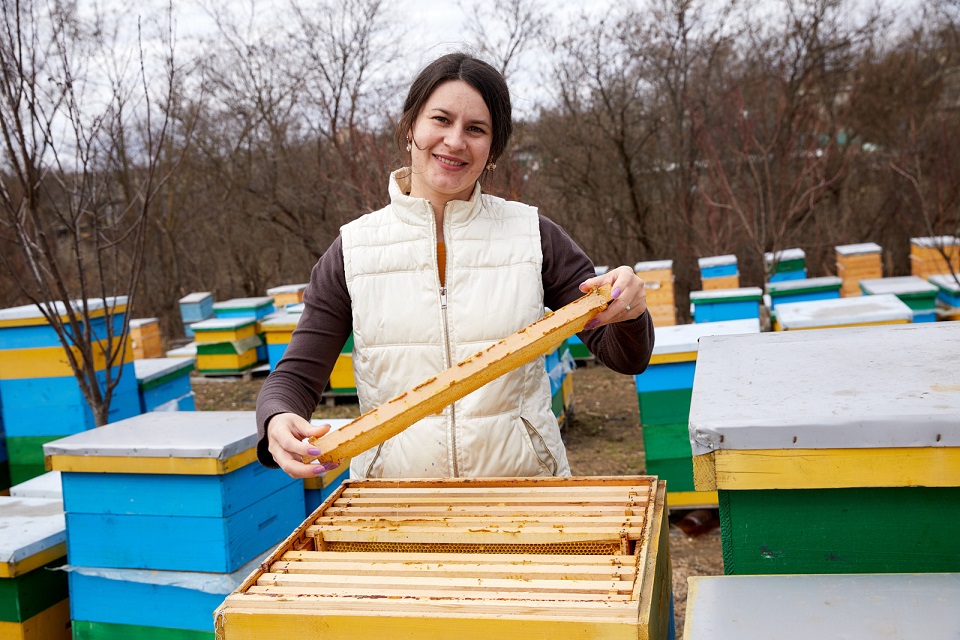
In Andrușul de Jos village, Bacaliuc tells a similar story of her path to becoming a beekeeper. In 2014, her family started caring for two beehives. They now have 300.
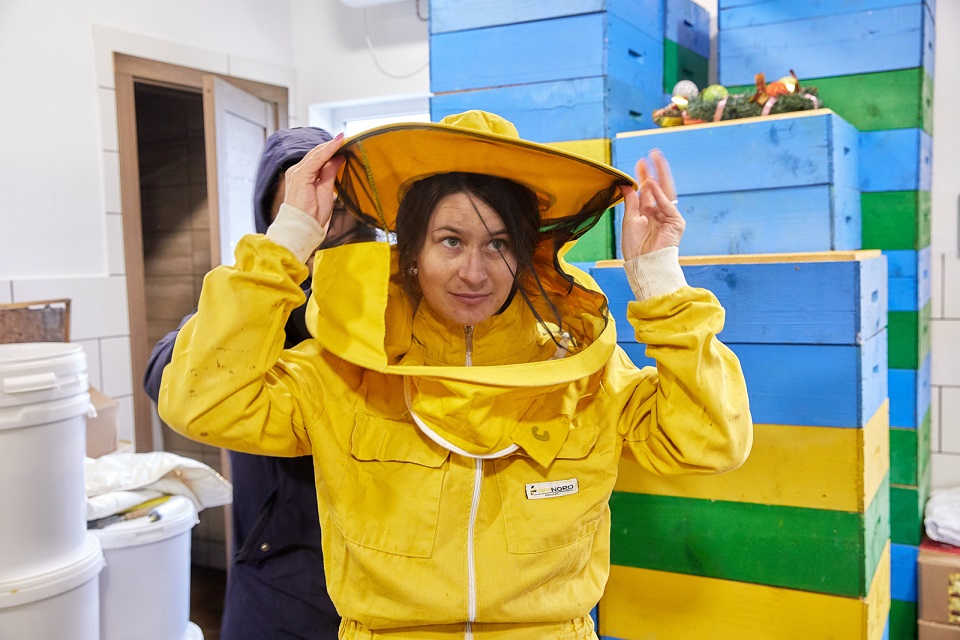
“My husband studied beekeeping and shared with me various interesting facts about bees, how each of them has a role to play, regardless of what happens. I was bewitched and I said I wanted to come and help him. Then, I never wanted to leave. I like to hear them buzzing. It calms you, and we work really well together [with the bees],” laughs Bacaliuc, letting the honey cream flow slowly into a jar.
She takes a little honey with a wooden stick and tastes it. She explains that it is important for it to be creamy and to melt immediately on the tip of your tongue, then turns on the stirring mechanism again, to make sure it is just right.
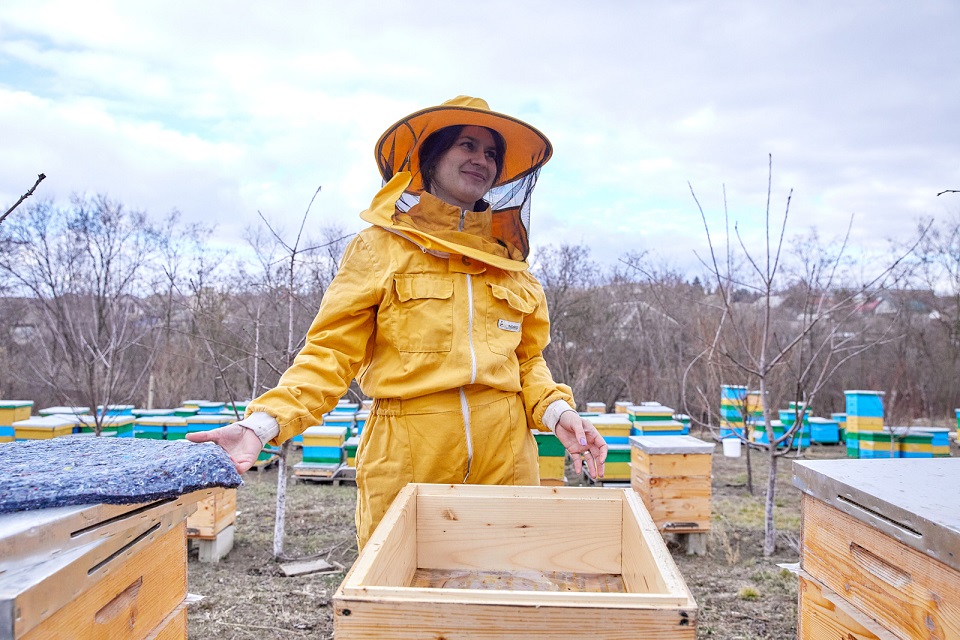
“In summertime, I wake up and go to bed at the same pace as bees do. I always keep an eye on the weather forecast. I know at what time sun rises, what direction the wind blows, when it is going to rain and when it is going to be nice ... What I like best is the day when honey is harvested, because that’s when we see the result of our year-long work,” says Bacaliuc.
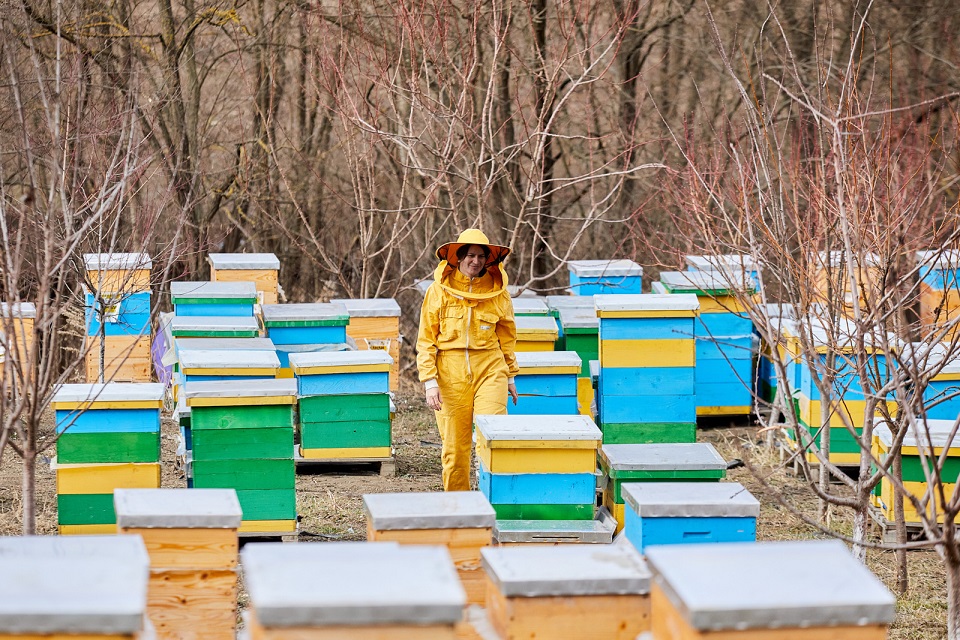
She puts in her maximum effort so that the beekeeping will turn into a long-lasting family business that her three sons, who only run among the beehives now, will eventually like to take over.
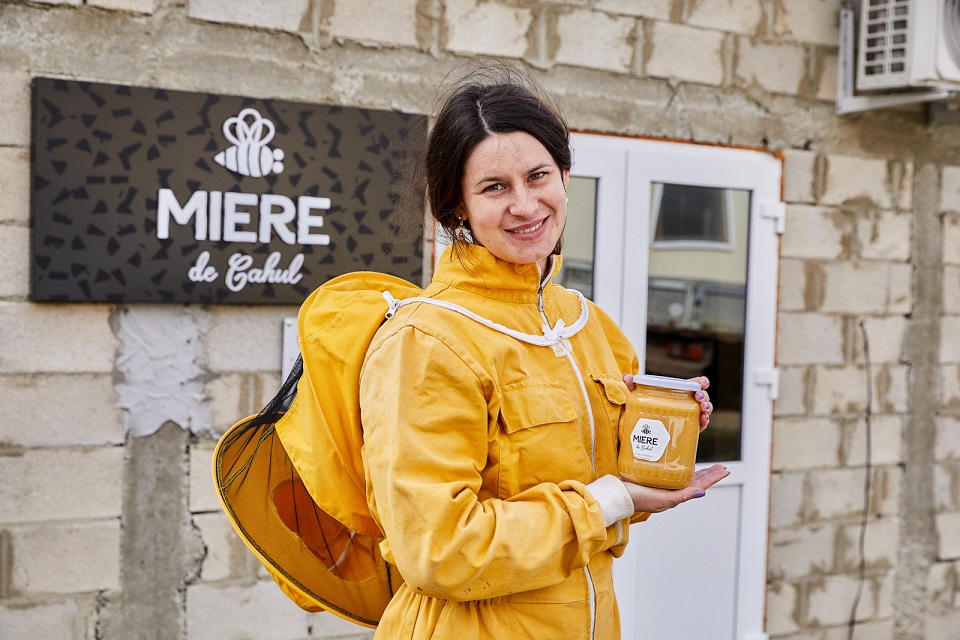
As part of the EVA project ‘Strengthened Gender Action in Cahul and Ungheni districts’, funded by the European Union and implemented by UN Women in partnership with UNICEF, UN Women has developed gender-responsive local development strategies and transformed budget programs to respond better to the needs of everyone, specifically women, girls and the most vulnerable groups in these districts. Cristina Bacaliuc and Liza Mămăligă benefited from these efforts, which aimed to create profitable and inclusive economic opportunities in Cahul and Ungheni districts by diversifying and supporting small businesses, including those of women entrepreneurs.